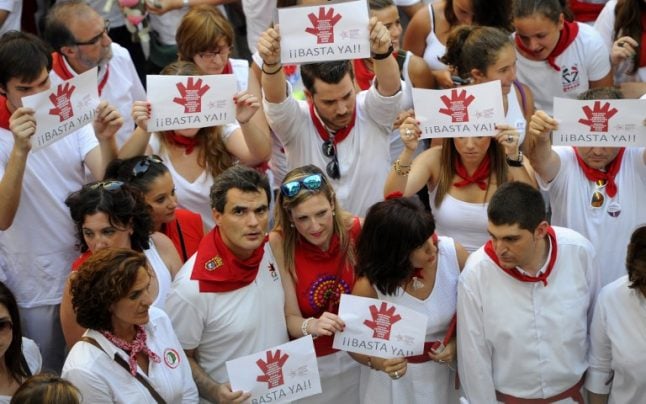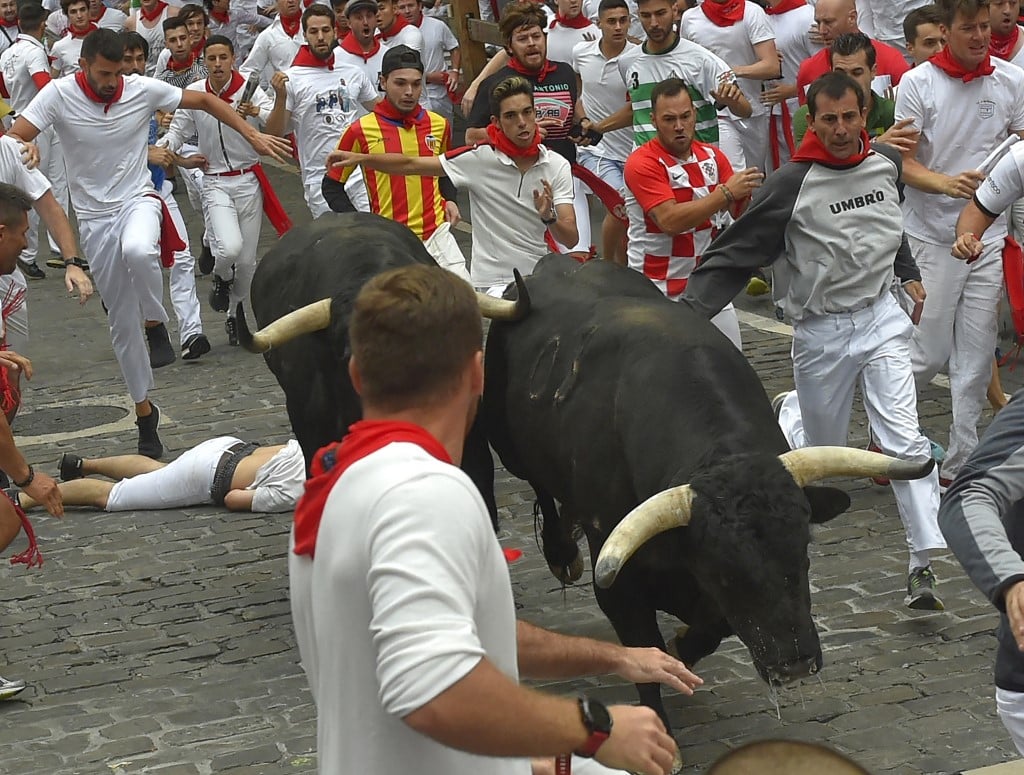The men, aged 27 to 29, are accused of having raped the woman, then aged 18, at the entrance to an apartment building in Pamplona on July 7th, 2016 at the start of the week-long San Fermin festival, which draws tens of thousands of visitors.
The five, who are all from the southern city of Seville, allegedly filmed the rape with their smartphones and then bragged about it on a WhatsApp messaging group where they referred to themselves as “La Manada,” or “The Wolf Pack” in English.
READ MORE: Anger in Spain over Pamplona festival gang rape case

The men say the woman consented and have only admitted to stealing the woman's mobile phone. Their lawyers on Tuesday pleaded with court for them to be acquitted.
During the trial the men's lawyers cited the videos of the incident, which were shown in court, as proof that the woman had agreed to the sexual encounter.
“We don't see a sexual assault, we see sexual relations, period,” the lawyer for three of the accused, Agustin Martinez Becerra, told reporters.
Public prosecutors denied the woman consented and have asked that the five men be sentenced to 22 years and 10 months in prison each.
During their final arguments on Monday they pointed out that the woman had met the men just seven minutes before the alleged rape and did not even know their names.
“There was serious intimidation and it prevented resistance or flight, she had no other option but to submit,” public prosecutor Elesa Sarasate told the court in the first session of the trial that was open to the public, according to online newspaper El Diario.
The trial, which began on November 13, had up until then been held behind closed doors to protect the identity of the alleged victim.
The case sparked criticism from women's groups after the court initially agreed to admit as evidence a private detective's report into the alleged victim's behaviour after incident, including her presence at a party.
Spaniards adopted the slogan “I believe you” on their social media profiles in support of the woman and street protests were held in Madrid and other Spanish cities this month against violence against women and the court's handling of the case.



 Please whitelist us to continue reading.
Please whitelist us to continue reading.